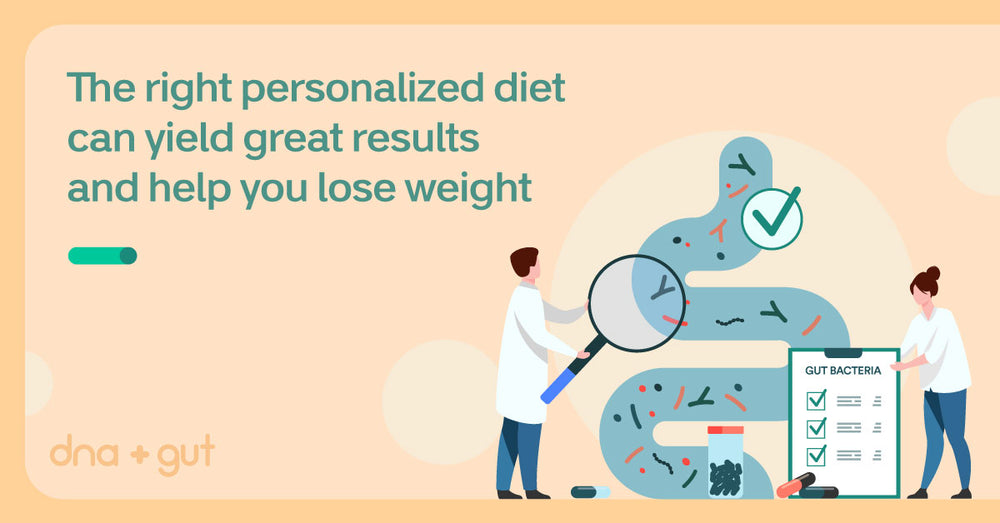Our gut microbes have co-evolved with us for centuries. Their role in ensuring good health is becoming increasingly evident. By association, they also influence body weight and overall well being. Can you change your gut microbiome composition with food to increase the number of bacteria that can help you lose weight? Let’s explore this intriguing possibility.
Our gut bacteria influence body weight regulation by:
- Influencing metabolic, neuroendocrine, and immune functions
- Regulating gene expression
- Improving the ability to extract and store energy from food and nutrients.
In addition, gut microbial imbalances are partly responsible for inflammation, insulin resistance, and weight gain. Reduced bacterial diversity in the gut flora has a direct correlation with obesity.
Bodyweight seems to be related to the balance of two main types of gut bacteria: Bacteroidetes and Firmicutes.
Video by Digbi Health
How you can alter your gut bacteria to lose weight: with food
Since the food we eat has a direct effect on our gut microbiome, we can modify our gut bacteria to enrich the phyla that promote changes towards a healthier weight. While there is no one-size-fits-all “microbiome diet,” eating right and making sustainable healthy choices can tip the scale left, in favor of weight loss. Coupled with knowledge about genetic predisposition, the right personalized diet can yield great results and help you lose weight. Here are a few things you can do to ensure you are following the right diet for those bacteria in your gut:
Include fiber in your diet
Fiber is prebiotic and feeds your gut bacteria. When gut bacteria break down or ferment indigestible fiber, they produce biochemicals called short-chain fatty acids, which go on to influence several metabolic functions. Promote diversity of gut bacteria by including a large variety of fruits and vegetables in your diet, such as onions, squash, cauliflower, eggplant, beets, carrots, mushrooms, and leafy greens like spinach and kale. Also include whole grains, beans, and legumes. Apples, blueberries, almonds, pistachios, and artichokes help increase beneficial Bifidobacteria populations in the gut. Bifidobacteria help prevent inflammation in the intestine and contribute to gut health. Most of these foods fall under the umbrella of the “Mediterranean Diet,” thought to be the best gut microbiome diet.
Take probiotics or probiotics supplements
Probiotics are a shot of healthy bacteria for your gut. They can be found in fermented foods like live-culture yogurt, which contains bacteria belonging to the genus Lactobacillus. If you are looking to go dairy-free, you may consume non-dairy fermented foods like fermented soybean milk, sauerkraut, kimchi, kefir, kombucha, or tempeh instead.
Include nuts and seeds in your diet
In addition to fiber, nuts and seeds contain healthy fats that help support the growth of beneficial gut bacteria. You can also include polyphenol-rich foods such as dark chocolate, green tea, and, in moderation, red wine.
Foods harmful to gut bacterial health
Sugary and certain processed food items can promote harmful gut bacterial growth. Artificial sweeteners such as saccharin and aspartame can reduce the numbers of good gut bacteria and must be avoided. Foods containing unhealthy fats must also be dropped from the diet and replaced with healthy fats rich in omega-3 fatty acids like salmon. Digbi Health has operationalized the first gut microbiome and DNA-based weight loss program covered by insurance companies. For personalized guidance to help you navigate your unique biology, metabolism, lifestyle, and food preferences, try our customized gut biome and DNA-based weight loss program.















